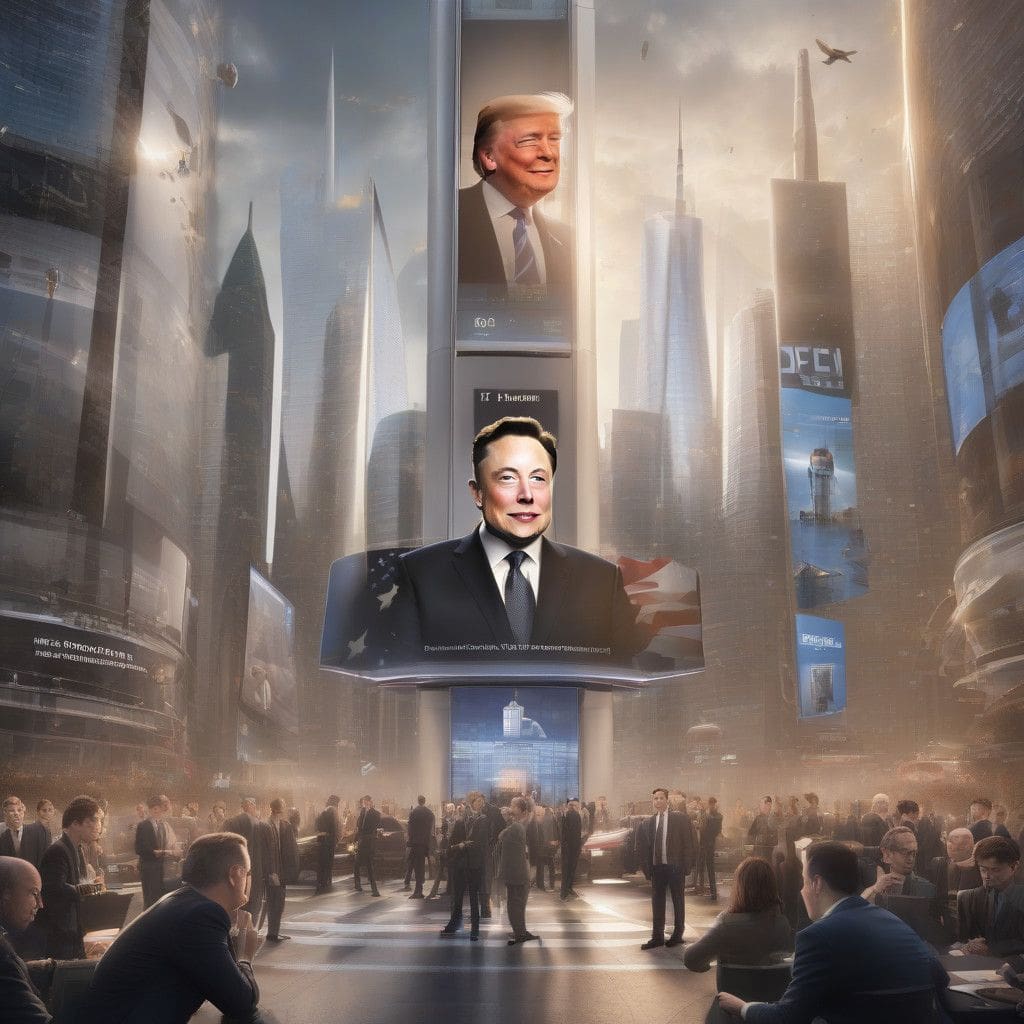As Elon Musk contemplates a potential role within a future Trump administration, he simultaneously navigates the turbulent waters of European regulatory scrutiny. The European Commission has made it clear that no matter the political changes in the United States, it will pursue enforcement of the Digital Services Act (DSA) against his social media platform, X (formerly known as Twitter). This situation presents a complex landscape for Musk, where the intersection of politics and stringent regulatory frameworks could lead to significant repercussions.
The European Commission, which oversees compliance with the DSA, has revealed that it is actively investigating X for non-compliance related to the management of illegal content and the use of manipulative design practices, often referred to as “dark patterns.” The inquiry underscores the EU’s commitment to holding platforms accountable, reinforcing that political appointments do not exempt businesses from regulatory obligations. To date, the outcome of this investigation remains pending, with a decision expected shortly.
A spokesperson from the European Commission emphasized that Musk’s potential role in the government would not alter the EU’s enforcement strategies. “We will impose necessary corrections regardless of any political affiliations,” the spokesperson stated, highlighting the EU’s unwavering position on protecting digital citizens. Such statements signal that any fines or legal actions resulting from the DSA violations would proceed as planned, regardless of Musk’s political stature.
The implications of these regulatory actions could extend beyond corporate penalties. Musk himself could face personal accountability based on X’s global revenue, although it remains unclear if this would translate into direct fines on him as an individual. It raises the question of whether being in a position of power might lead to a rethinking of personal versus corporate accountability in cases such as this.
Former EU Commissioner Thierry Breton has previously indicated that the DSA violations committed by platforms like X would be pursued vigorously, stating, “EU regulations are designed to protect users, and their enforcement will not falter—even amid political changes.” His comments reflect a broader trend within the EU aimed at reinforcing stringent standards for digital platforms, especially those with vast user bases.
Furthermore, the EU’s regulatory framework includes provisions for far-reaching action against tech giants, primarily focusing on measures that ensure platforms curb illegal content and implement user-friendly design practices. It’s worth noting that such regulations not only aim at controlling digital spaces but also serve as a critical test for businesses on how they align with principles of user safety and transparency.
The fluctuating dynamics between Musk and the EU raise another layer of complexity. While he may receive political support from Trump, his relationship with European regulators is marked by persistent tension. Musk’s actions and statements may further complicate this relationship, especially if they contradict the EU’s regulatory ethos, which emphasizes consumer protection.
This crossroads between politics and business could redefine how technology platforms engage with international regulations. The potential consequences of Musk’s leadership decisions—or the lack thereof—may ripple through the larger tech landscape. Other technology businesses may watch closely, learning from Musk’s experiences as they determine how to navigate similar challenges in the EU and beyond.
As Musk considers an influential role within an incoming administration, the stakes are incredibly high. This situation illustrates a broader narrative regarding the relationship between governmental power, corporate responsibility, and consumer rights within the evolving digital marketplace. Tech leaders must recognize that their responsibilities extend beyond borders, particularly in jurisdictions where regulatory frameworks strive to safeguard user interests robustly.
In summary, Musk’s future role in a Trump administration does not shield him from the rigorous scrutiny of the European Commission. With the DSA’s strict compliance standards standing firm against any personal or political growth, the tech entrepreneur faces the critical test of balancing innovation and accountability under public and regulatory watchful eyes.











